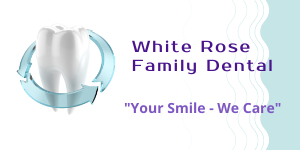Going to the dentist regularly is one of the best ways to care for your teeth. Regular cleanings are vital for maintaining oral health, and dental visits are a great time to ask your dentist any questions about caring for your teeth. Here are some of the most important (and common) questions for your dentist.
What Can I Do To Prevent Cavities?
Asking your dentist for tips on how to avoid cavities will go a long way in helping you manage a healthy smile. Your dentist will be able to give personalized recommendations based on your risk level and help you know which areas you need to focus on; however, the following list contains the basic things that all of us can be doing to prevent cavities every day:
- Brush at least twice a day with fluoride toothpaste. Brush at a 45-degree angle and use a soft-bristled brush to avoid wearing down the enamel of your teeth. A power toothbrush is also a great way to ensure you are thoroughly cleaning each time you brush.
- Floss daily to reach the places your toothbrush can’t. This will also protect from gum disease.
- Limit sugar. Avoiding sugary drinks, sweets, candies, and gum is very important if you’re trying to prevent cavities. Sugar mixes with the bacteria in your mouth to create acid that eats away at tooth enamel. If you do eat sugary foods, try to brush your teeth afterward.
- Drink plenty of water and follow a healthy diet. Drinking water regularly will keep you hydrated and help to rinse food particles away from your teeth. Following a healthy diet, including vegetables, fruit, and lean protein, will give your teeth all the nutrients and vitamins they need to stay strong.
Why Are My Teeth So Sensitive?
Sensitive teeth can be troubling, but your dentist will help you determine the cause and how to treat it. There are many reasons why your teeth may be sensitive. The most common problem is worn-down enamel, which exposes the dentin, the second layer of your teeth. This can cause sensitivity to acids, heat, cold, and sticky foods. This wearing down can happen over time with age, aggressive brushing, or grinding your teeth. Sometimes, tooth sensitivity can be caused by gum disease, cavities, vitamin deficiencies, or the use of teeth-whitening products. Your dentist will locate the cause of your sensitivity and help you devise a strategy or treatment plan.
Which Toothbrush Should I Use?
Asking your dentist for toothbrush recommendations is an excellent idea. Dentists generally recommend soft-bristle toothbrushes because they are gentler on your teeth and gums, especially if you have soft gums or enamel erosion. There are many different types of toothbrushes on the market. Knowing your teeth and the oral hygiene issues you face, your dentist will be able to direct you to the best toothbrush for your needs. Some toothbrushes have special features like sensors, gentle modes, or apps that could help improve your brushing habits.
How Can I Prevent Gum Disease?
Gum disease, known as periodontal disease, can harm oral and overall health if left untreated. Not only can it cause tooth loss, but the bacteria that cause it can enter your bloodstream and affect other parts of your body. Gum disease increases your risk of heart attack, stroke, and diabetes. Preventing it is very important. As in the case of cavity prevention, there are very simple things that your dentist will recommend to help prevent gum disease.
- Brushing your teeth twice a day with a soft-bristled toothbrush and fluoride toothpaste. Pay special attention to brushing along the gum line using small, round motions, angling the brush upwards to get between your teeth.
- Floss every day to remove the plaque from between your teeth.
- Get regular cleanings. Visiting the dentist for professional cleanings and checkups is vital to healthy gum care.
- Avoid tobacco. Smoking cigarettes or using other tobacco products, such as chewing tobacco, cigars, or e-cigarettes, is harmful to your gums.
- Eat healthy foods. Vitamin C deficiency is a leading cause of gum disease, so eating a varied and healthy diet high in vitamin C can help prevent gum disease.
Should I Use Mouthwash?
You may be wondering if mouthwash is important to your oral hygiene routine. Your dentist will be able to determine if you should be using a mouthwash and which one is best for your needs. Mouthwash can help with many things, such as freshening breath, reducing plaque, and preventing gum disease and tooth decay. However, it is unnecessary for everyone, and in some cases, it can mask underlying issues. Always address any dental issues with your dentist during your regular cleanings, including if mouthwash would be a valuable addition to your dental hygiene routine.
Visiting your dentist regularly is one of the best things you can do to protect your health. Your dentist will answer these and any other questions concerning your dental health. In addition to providing cleanings, detecting problems early, sharing tips to prevent cavities and decay, and screening for oral cancer, your dentist can provide personalized recommendations that address your concerns. A good dentist will welcome any questions you have and take the time to address all of your concerns.
To schedule a time with Dr. Kapadia, call us today at (717) 822-0272 or click here to schedule your appointment. We will be happy to answer any questions and help you establish a plan for better dental health.
